Kenya
At his office located on one of the doctors chamber on the outskirts of Kenya’s capital Nairobi, Peter Otieno’s computer screen is awash with colourful maps and charts.
The tech savvy medical officer can track outbreaks of deadly diseases and keep on eye on the progress of potentially tricky pregnancies. “With the touch of a button I can see what’s going on across the country in real-time,” Peter said. “It is amazing.”
Peter’s computer is collecting vital health and epidemiological data from hundreds of miles away via travelling health workers with mobile phones.
“It used to take days, weeks or even a couple of months to find out about an outbreak of Polio on the other side of the country. Now we know almost instantly. The speed with which we can now collect information has catapulted healthcare and prevention to another level,” Peter explained. “It has completely change healthcare and saved countless lives.”
Kenya’s Data Dyne system is just one example of hundreds of innovative mobile phone-based projects that are helping to improve healthcare in Africa.
Mobile phones are increasingly playing an important role in mediating the provision of better healthcare to the citizens of African countries.
In fact, today’s mobiles are filled with so much state-of-the-art technology they are being used as walking, talking field hospitals.
In South Africa there’s Impilo, a service that allows people to find healthcare providers anywhere in the country 24 hours a day, using their mobile phones.
Technology can make a real difference: OnBase is helping keep HIV+ mothers and children healthy in South Africa http://t.co/nZFIvyZPq2
— Glenn Gibson (@Highland_Glenn) March 14, 2013
The popularity of mobile phones in Africa has also helped to tackle HIV and Aids in various countries such as Uganda, Malawi, Kenya and South Africa.
Tackling Ebola through Technology
Since the World Health Organisation (WHO) recorded the first case of the Ebola virus in West Africa in March 2014, organisations around the world scrambled to fight the disease.
Mobile phones equipped with apps and digital platforms targeting health – popularly known as mHealth – were on the frontlines and increasingly became crucial in tackling the epidemic which by the time it was contained left more than 10,000 people dead.
Health officials in Nigeria credit a large part of their success in eradicating Ebola cases to the use of mobile technology in the country’s healthcare system.
Nigeria, the region’s largest economy, diagnosed its first case of the disease in July 2014.
Public health officials worried about how quickly it could spread in this populous country. But Nigeria – in contrast to regional neighbours such as Sierra Leone, Liberia and Guinea – quickly contained and eradicated the outbreak.
Nigerian health workers deployed mobile phones loaded with mHealth apps soon after the first cases were recorded.
This led to a significant reduction in the reporting time of Ebola cases from 12 hours to six hours initially. Uptake was rapid. Soon, the app was able to track reports made in real time.
Nigerian contact tracers used mobile phones equipped with GPS tracking to visit individuals suspected of being exposed to the virus. This allowed authorities to map the tracers’ visits in GPS coordinates.
Data from the Ebola Emergency Operation Centre in Lagos showed that more than 800 people were traced and roughly 18,500 houses and workplaces were visited during the Ebola campaign.
“Mobile health technology contributed hugely to our success,” says Daniel Tom-Abba, former senior data manager at the Ebola Emergency Operation Centre in Lagos.
“It helped us get data from the grassroots in real time and transmit it to the control centre significantly more quickly than if we had been doing it manually.”
In the end, Nigeria had only 19 cases, of which seven died and 12 survived, compared to the thousands of mortalities in other affected countries in the region.



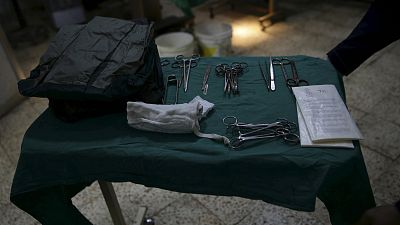

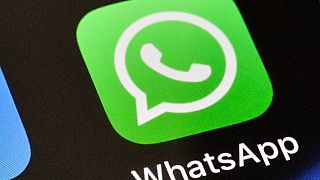
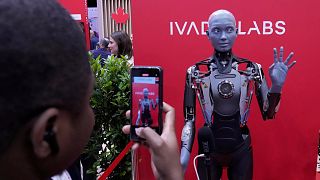

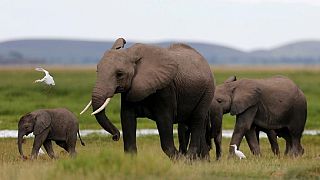
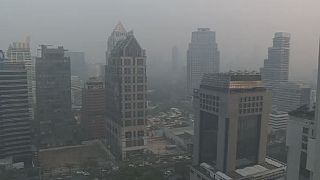
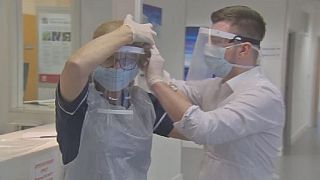



00:28
Nairobi hawker shot at close range by police declared brain dead
01:50
Faith Kipyegon falls short of historic sub-four minute mile but vows to keep pushing
Go to video
Kenya's Interior minister accuses protesters of coup attempt after deadly demos
00:48
Death toll in Kenyan anti-government protests rises to 16, says rights group
01:07
Kenya prepares for first anniversary of Finance Bill protests
01:52
UN's crucial humanitarian aid work faces a clouded future amid cuts in funds